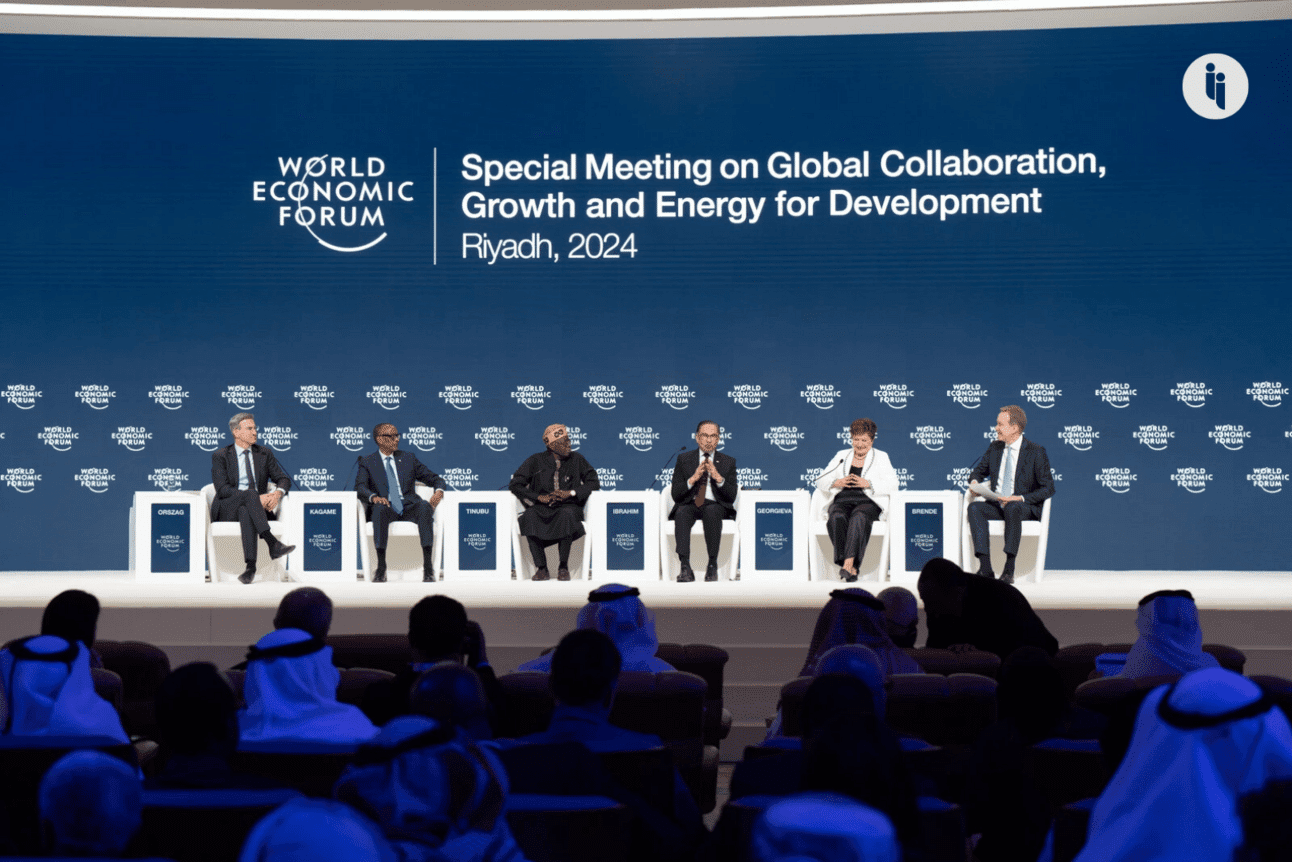The two-day World Economic Forum (WEF) ‘Special Meeting on Global Collaboration, Growth and Energy for Development‘ wraps in Riyadh today.
And it’s attracted enough big names, across enough big topics, sitting on a big enough stage, in big enough chairs, to be worthy of your attention.
Here are the five most intriguing quotes you need to know, and why.
Stay on top of your world from inside your inbox.
Subscribe for free today and receive way much more insights.
Trusted by 114,000+ subscribers
No spam. No noise. Unsubscribe any time.
- “Please do not impose your problems on us” – Anwar Ibrahim, the prime minister of Malaysia
Anwar was repeating his same line that made waves earlier in the year. Ie, he’s well aware the West and China are competing – particularly in his home turf of Southeast Asia – but while he’ll handle it all with care, it’s just not his problem.
Western leaders might well respond that they’re not seeking to impose problems, but merely offer alternatives to China. Yet Anwar is an example of how, in a multipolar world, leaders will tick ‘all of the above’ if given the chance.
- “Being green is not a religion” – Prince Abdulaziz bin Salman (ABS), Saudi Arabia’s energy minister
Getting a rare audience LOL, ABS went on to compare the world’s climate debate to the Spanish inquisition, with folks being tested according to a script: “you are either a believer or a non-believer“.
So it was interesting to then hear from Pakistan’s prime minister, who emphasised that his country makes little contribution to greenhouse gas emissions, yet is already bearing the brunt of historic floods. And speaking of him…
- “Back on track” – Shehbaz Sharif, the prime minister of Pakistan
That’s how the newly returned Sharif referred to Pakistan in a side meeting with the IMF chief at the summit yesterday. And his timing was neat ahead of today’s internal IMF meeting to discuss the final tranche of Pakistan’s latest bailout.
Interestingly, Sharif’s office says he also raised the possibility of a further IMF bailout – Pakistan’s 24th. This is because – notwithstanding Pakistan’s growth, cooler inflation, and efforts to stabilise spending – it still owes around $24B in debt and interest this year. That’s triple what its central bank now has in the vault.
- “The hallmark of leadership is taking difficult decisions” – Bola Ahmed Tinubu, the president of Nigeria
It’s been almost a year since Tinubu took office with a speech that surprised everyone by ending Nigeria’s popular fuel subsidies. While this caused hardship for folks at home, he’ll have known (or at least hoped) the key international lenders and investors in this Riyadh audience saw it all as a sign he’s taking a prudent approach to Nigeria’s economy.
And that’s where his core message overlapped with what just about every other world leader has said at this summit in Riyadh: “we’re open for business”.
INTRIGUE’S TAKE
This summit – and the way it’s being delivered – is partly a branding exercise for both the WEF and the Saudis. For the WEF, hosting this in Riyadh and packing it with emerging world leaders is a way to shrug off criticism that, after 54 years of turtle-necks in Davos, it was becoming too elitist and out-of-touch.
Likewise for the Saudis, it’s an attempt to project the kingdom as something beyond a time-limited petrostate – rather, it wants to be a ‘pole’ in this new multipolar world of ours, not to mention the place to, say, negotiate Middle East peace, eradicate polio, or watch Ronaldo earn his $220M.
Once you keep this marketing aspect in mind, you remember to take some of the content on stage with an Ontario quarry of salt.
But even factoring that in, you can hear some clear and interesting messages from emerging market leaders: they’re grappling with their own issues, they’ll make their own choices, and they’ll bristle when the world forgets.
Other intriguing lines:
- “Israel has the right to full security, and it is our duty” – Palestinian Authority leader, Mahmoud Abbas. Adding to this line, he said: “We, as Palestinians, have the right to determine our fate and to an independent state just like the rest of the peoples of the world.”
- “We haven’t seen this kind of debt since the Napoleonic Wars” – Børge Brende, the WEF president and former Norwegian foreign minister. Directed mostly at the US and China, Brende was picking up on the recent IMF report that warned of global risks from unsustainable debt.
- “The world is today walking a tightrope, trying to balance security and prosperity” – Faisal Alibrahim, the Saudi economy minister. The thing about a tightrope is, as Alibrahim went on to say, you’re only ever a “miscalculation or miscommunication” away from a fall.









